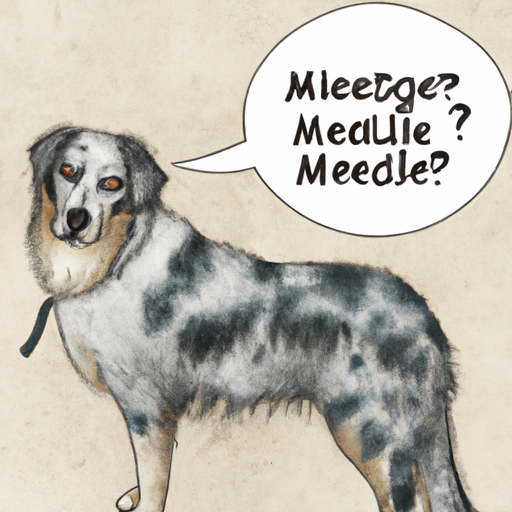Introduction
You’ve probably heard the term “merle” thrown around quite a bit in dog-related conversations. But what does it actually mean? As a caregiver, understanding your pet’s genetics can help you better care for their needs. Let’s delve into the fascinating world of merle genetics in dogs.
Understanding Merle
Merle is a unique pattern in a dog’s coat. This pattern is often characterized by:
- Patches of faded or diluted color scattered across the coat
- Unique patterns that do not follow any particular order or structure
It’s interesting to note that the merle gene does not create a color. Instead, it modifies the existing coat color, leading to the unique patchy appearance.
Here’s a simple table to illustrate the effect of the merle gene on common coat colors:
| Original Coat Color | Effect of the Merle Gene |
|---|---|
| Black | Turns into shades of gray |
| Brown | Turns into lighter brown or tan |
| Red or Yellow | Turns into cream |
The Genetics of Merle
A dog’s genetics can seem like a complex puzzle, but once you start to understand the pieces, it becomes a fascinating journey. The merle gene is dominant, which means that only one parent needs to carry the gene for the offspring to potentially inherit the trait. However, when two merle dogs are bred together, the puppies have a 25% chance of being “double merle,” which often leads to serious health issues.
Health Implications of Merle
As a caregiver, the health of your dog is paramount. Unfortunately, the merle gene can carry significant health risks, particularly for double merles. Most notably, these include:
- Deafness
- Blindness
- Sun sensitivity
- Skin cancer
However, not all merle dogs will experience these health issues. Regular check-ups and careful monitoring can help ensure your merle dog lives a healthy and happy life.
Caring for a Merle Dog
As a caregiver, you can provide the best care for your merle dog by:
- Regular vet check-ups
- Protecting them from excessive sun exposure
- Providing a balanced diet and exercise
- Regular grooming to maintain a healthy coat
FAQs
What breeds commonly have the merle trait?
Breeds that commonly exhibit the merle trait include the Australian Shepherd, Border Collie, and Great Dane among others.
Can any breed be merle?
While any breed can theoretically have the merle gene, it is more common in certain breeds due to selective breeding.
Can a merle dog have a non-merle puppy?
Yes, a merle dog can have non-merle puppies if bred with a non-merle partner.
Are merle dogs always deaf or blind?
No, not all merle dogs are deaf or blind. These health issues are more common in double merles.
How can I protect my merle dog from the sun?
Use dog-friendly sunscreen, provide plenty of shade, and avoid outdoor activities during peak sunlight hours.
By understanding more about what merle means in dogs, you’re taking an important step toward providing the best possible care for your pet. Your curiosity and dedication to learning make you an amazing caregiver. Keep exploring, keep asking questions, and keep loving your dog for the unique individual they are.



